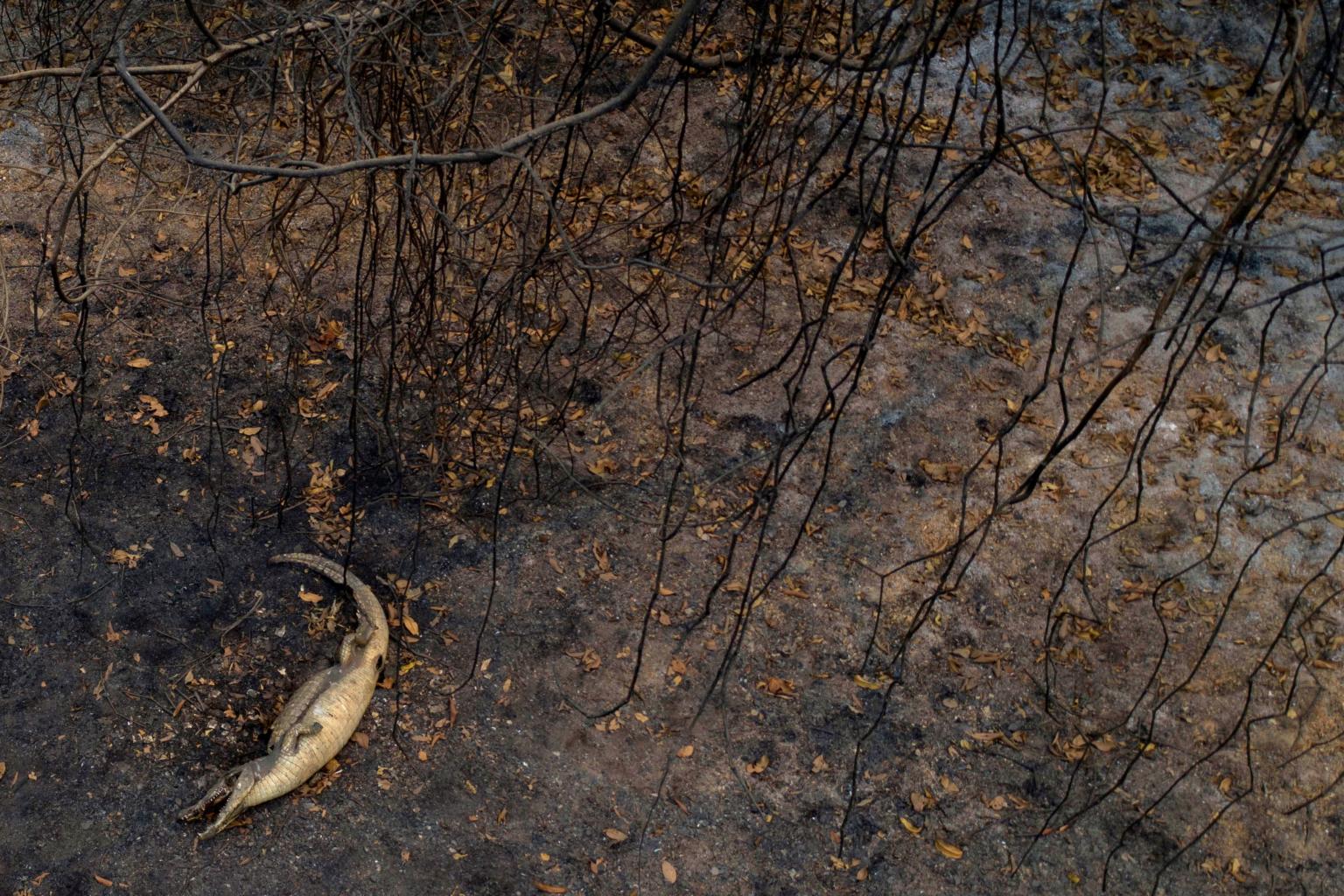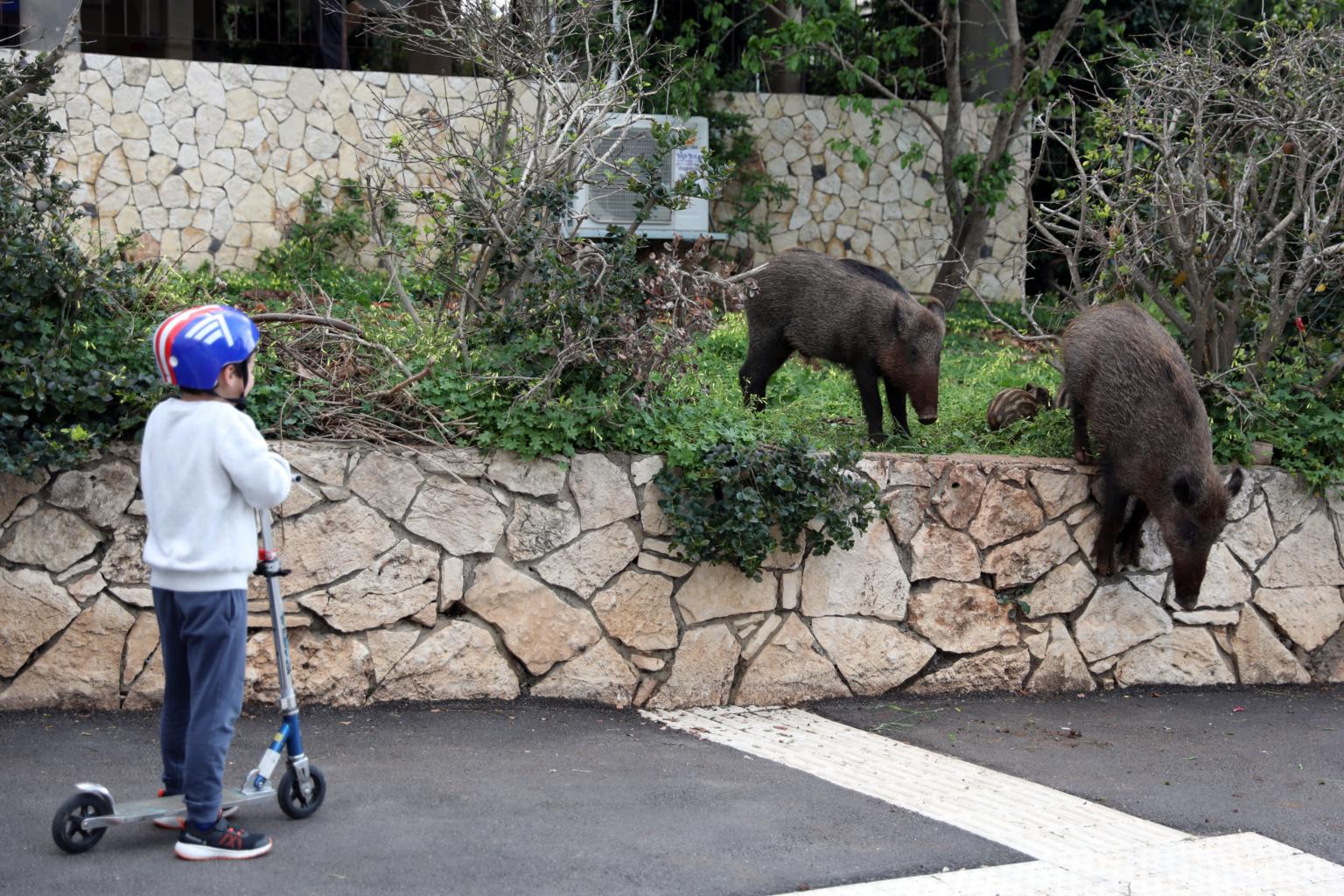As people stayed home amid the global Covid-19 lockdowns early last year, the streets and town centres became play areas and hunting grounds for droves of animals.
In March, a gang of Kashmiri goats ventured into a Welsh town, hopping over brick walls and nibbling at hedges. In the coastal city of Mar del Plata in Argentina in April, sea lions enjoyed a siesta in the middle of a street near the city's port.
In Singapore, a family of otters were spotted frolicking on the empty streets outside Mustafa Centre in April during the circuit breaker.
"I think (animals visiting cities) shows the extent to which human communities have increasingly taken up space that maybe had been wilderness not that long ago, maybe a generation or two ago," said Nanyang Technological University (NTU) botanist Shawn Lum.
Although it highlights the extent of the human footprint, it also shows that wildlife "has enough resilience to come back and try to reclaim or occupy some of that space," added Dr Lum, who is from NTU's Asian School of the Environment.
The pandemic, however, did not end the battle for space. In some parts, it was marked by illegal poaching, logging and wildfires across national parks and rainforests.
Villagers left jobless by India's lockdown in March turned to poaching to earn money and feed their families, according to reports.
Between February and May last year, as visitor numbers dropped, the Uganda Wildlife Authority recorded 367 poaching incidents in the nation's national parks.
"When Covid keeps people away, it also keeps law enforcement away, and that's a nice vacuum for poachers and other illegal activities to move in," said Dr Lum.
Meanwhile, South America is on fire.
As the outbreak cut back on monitoring and enforcement efforts in the Amazon rainforest, the scale of illegal logging and mining increased last year.
Compounded by the region's worst drought in nearly half a century and the Brazil government's support for deforestation, the number of wildfires in Brazil reached its highest in a decade last year, with more than 222,000 wildfires.


As a giant carbon sink, the raging flames that tore through the Amazon does not do sustainability any favours.
The degradation of nature can increase the risk of future pandemics as wildlife-human contact may cause the spillover of new diseases, a recent report by The Intergovernmental Science-Policy Platform on Biodiversity and Ecosystem Services (Ipbes) said.
Those drivers include changes in land use, agricultural expansion and wildlife trade.

The authors also noted that an estimated 1.7 million undiscovered viruses may exist in mammals and birds. Of those, up to 827,000 of them might be able to infect humans.
But "blaming wildlife for the emergence of diseases is erroneous, because emergence is caused by human activities and their impacts on the environment," said the Ipbes report, which was released in October.
The authors suggested that there should be more effort in preventing pandemics, instead of controlling diseases after they occur, which is 100 times costlier to manage.
Work must be done to predict the origins of future outbreaks, identify hosts and high-risk pathogens, as well as prevent the exploitation of biodiverse regions, the report suggested.


